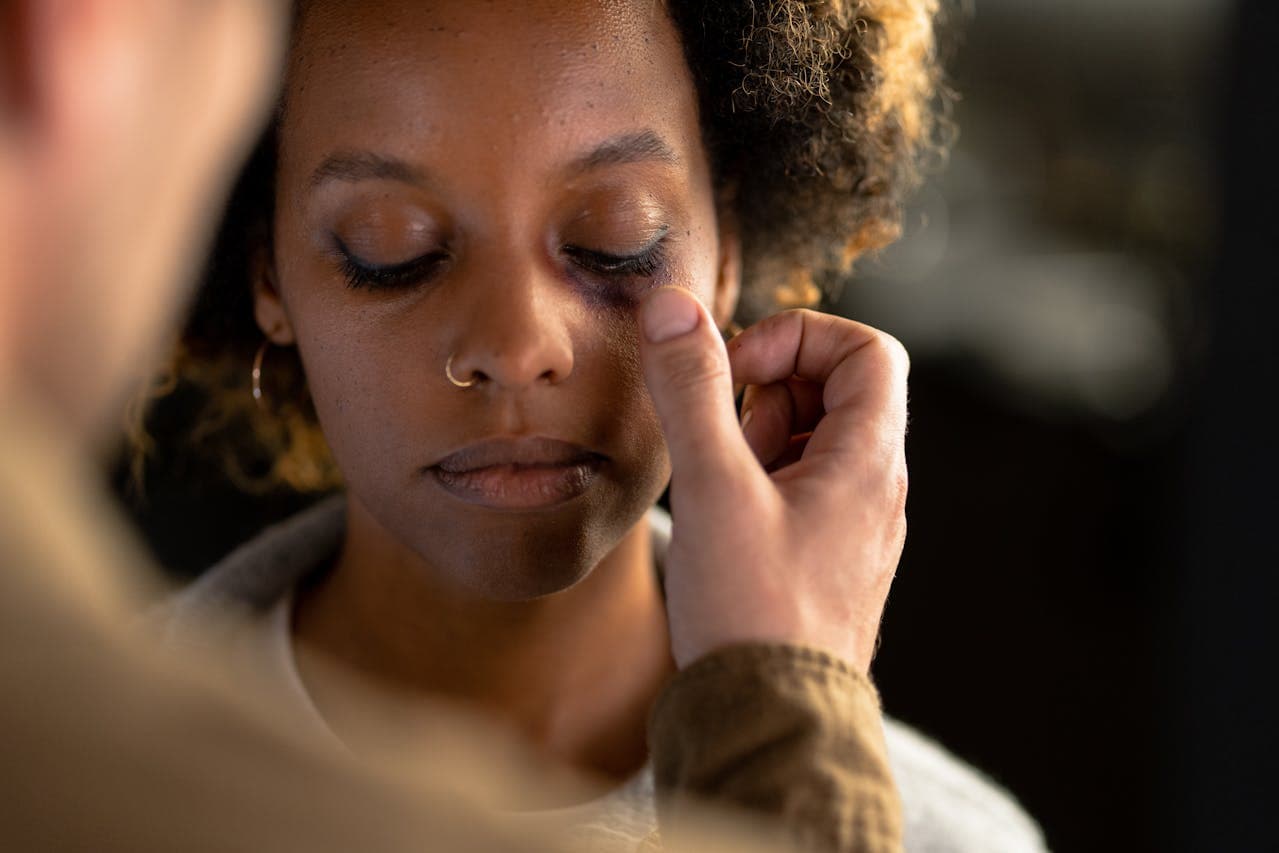How to choose the right domestic violence attorney in Colorado
Do you need professional legal support for domestic violence cases in Colorado? Choosing the right attorney is crucial to ensuring the best possible outcome for your case.
Understanding Domestic Violence Cases in Colorado
Colorado has made progress in combatting domestic violence, with a 30% reduction in related deaths between 2022 and 2023. However, domestic violence remains a serious issue, with 58 fatalities in 2023. Certain counties, like Dolores, still face high domestic violence mortality rates.
Cases require attorneys who not only understand the law but also provide compassionate support. A knowledgeable lawyer should be familiar with both criminal and civil aspects, including protection orders and emergency legal actions. Additionally, they should be adept at handling restraining orders, child custody disputes, and financial support matters related to domestic violence cases.

Key Traits to Look for in an Attorney
When selecting an attorney, consider these non-negotiable qualities:
- Specialised experience in domestic violence law
- Strong knowledge of Colorado laws
- Proven track record in similar cases
- Excellent communication and availability
- Compassionate and client-focused approach
- Negotiation and litigation skills
- Experience in handling complex legal motions
- Ability to work with victim advocacy groups and law enforcement
An attorney must have both legal expertise and emotional intelligence to navigate complex legal and personal situations effectively. The ability to build a solid defense strategy, while being sensitive to the emotional toll of such cases, is essential.
Questions to Ask During Consultation
Your initial consultation is an opportunity to evaluate potential attorneys.
Ask questions like:
- How much of your practice is focused on domestic violence cases?
- How do you handle emergency situations?
- What is your response time for client inquiries?
- Who will be handling my case?
- What are possible outcomes, and how do you prepare for trial?
- What is your fee structure?
- Do you have experience working with local law enforcement and advocacy groups?
- What support resources can you connect me with?
- What is your approach to working with survivors who may be facing financial or emotional distress?
- Have you handled cases similar to mine, and what were the results?
Beyond their answers, observe how they communicate. A skilled attorney should be clear, patient, and knowledgeable about local courts and judges. Their ability to provide realistic expectations and prepare for different legal scenarios is vital.
The Role of Experience and Specialisation
Not all attorneys are equally qualified. Look for lawyers with:
- Extensive experience in domestic violence cases in Colorado
- Strong relationships with local courts and judges
- Knowledge of available victim support services
- A history of successful plea negotiations and trial victories
- Familiarity with restraining order applications and enforcement
- Understanding of financial abuse cases and asset protection
- Ability to assist with long-term legal strategies, such as divorce and custody battles
- Experience in working with forensic experts, therapists, and social workers to support cases
Specialised attorneys bring deeper insights and more effective strategies than those handling domestic violence cases sporadically. Their familiarity with protective orders, emergency hearings, and legal motions specific to domestic violence cases can make a significant difference in your case outcome.
Cost Considerations and Payment Options
Legal fees vary, so it’s essential to discuss costs upfront. Most domestic violence attorneys offer a free consultation and use one of these fee structures:
- Hourly rates
- Flat fees
- Retainers
Many attorneys offer payment plans, accept credit cards, or help clients find legal aid options. Always get a written fee agreement and clarify additional costs such as court filing fees, expert witness fees, and emergency consultation charges.
Additionally, some victims of domestic violence may qualify for legal aid programs or pro bono services. If affordability is a concern, inquire about nonprofit organisations and state-funded legal assistance programs. Many law firms also offer sliding-scale fees based on income levels.
Red Flags to Watch For
Be wary of attorneys who:
- Make unrealistic promises about case outcomes
- Are difficult to reach or slow to respond
- Lack specialisation in domestic violence law
- Seem unfamiliar with local courts or victim support services
- Are vague about their experience or strategy
- Do not provide a clear fee structure upfront
- Seem unwilling to offer emotional support or guidance
- Dismiss concerns about protective orders or safety planning
Trust your instincts. If something feels off during the consultation, consider other options. A competent attorney should be transparent, communicative, and fully invested in your case.
Making Your Final Decision
To choose the best attorney, follow this process:
- Create a shortlist based on online research and client reviews.
- Check credentials, including bar association standings.
- Schedule consultations to assess expertise and communication style.
- Compare strategies and pricing to find the best fit.
- Ensure a comfortable working relationship with your chosen attorney.
- Verify the attorney’s involvement in domestic violence advocacy or legal education.
- Confirm their familiarity with victim support resources and protective measures.
- Ensure they have experience in complex cases, including those involving children or financial abuse.
- Ask for client testimonials or case success stories to gauge their reputation.
- Ensure they are committed to staying updated on changing domestic violence laws in Colorado.
Building Your Support Network
While legal representation is vital, a strong support network is equally important. A skilled attorney should help connect you with:
- Local support groups
- Counselling services
- Safety planning resources
- Emergency housing and financial aid
- Family law professionals for custody-related matters
- Victim advocacy services
- Mental health professionals for emotional support
- Career development programs for financial independence
These resources can improve both your legal case and overall well-being. Beyond legal representation, emotional support and safety planning are crucial in navigating domestic violence situations.
Taking the Next Step
Colorado has made strides in combatting domestic violence, but every case requires swift and professional action. Here’s what to remember:
- Seek legal representation immediately
- Document everything related to your case
- Prioritise safety with a personal safety plan
- Stay informed and involved in your case
- Know your rights under Colorado law
- Utilise protective measures such as restraining orders
- Seek additional support from community resources and mental health professionals
- Ensure you have a long-term plan for financial stability and legal security
An experienced attorney will guide you through the legal process while ensuring your safety and well-being remain top priorities. By securing legal expertise, building a support network, and staying informed, you can take decisive steps toward protection and justice. Choosing the right legal team will not only help you in the present but will also create a foundation for long-term security and stability.
![[AD] ✨ Festive magic for local families in the heart of Guildford ✨
We had the loveliest evening exploring the @guildfordilluminate light trail at Guildford Castle
The trail takes around 30–40 mins
with cosy stops for hot chocolate and toasting marshmallows, it’s a gorgeous Christmas activity for Surrey families.
It’s on until 4th January and makes the perfect festive plan:
🛍️ Christmas shopping in town
✨ The light trail
🍽️ Finish with dinner in Guildford
If you’re looking for a magical, stress-free festive outing with the kids — this is one to add to your Christmas list
📍 Guildford Castle, Castle St, Guildford GU1 3SX
#GuildfordWithKids #SurreyFamilies #ChristmasInSurrey](https://suburban-mum.com/wp-content/uploads/2018/09/589257185_18566118850016840_4432952740767953046_n-180x320.jpg)
![[AD] We went to the newly opened Cha Sha Kingston a couple of weeks ago, and wow — taste bud adventure unlocked! The boys devoured the masala fries and chicken tikka rolls, while we couldn’t get enough of that epic kebab butter curry 😍🍛.
It’s amazing value for food this tasty (and everyone left happy and VERY full!).
Delicious food, vibrant vibes and incredible value — the perfect combo for your next meal.
📍Cha Sha Kingston
43 Surbiton Road, KT1 2HG
🌐 chasha.co.uk
Other Cha Sha locations in Birmingham, Ilford, Southampton and Wembkey
#ChaSha #ChaShaKingston #KingstonEats #FoodieFinds #UKFoodie #FoodReview #KingstonUponThames #FamilyEats #FamilyDining #FoodieKids](https://suburban-mum.com/wp-content/uploads/2016/02/574770541_18560351146016840_6855048070839528040_n-180x320.jpg)

![[AD] We’re a cricket-mad family, so we’re buzzing that @thehundred is back this August! 🏏🔥
To get ready, M tried out the official FREE Activity Pack — and it’s brilliant! 🙌
Packed with fun games, creative challenges and sporty tasks, it’s perfect for getting kids hyped whether you’re at home or on the go.
👉Download yours now (link in bio)
@londonspirit @ovalinvincibles #EveryMomentCounts #TheHundred
#EnglandCricket #CricketFamily #TheHundredCricket #LondonBloggers #Cricket #CricketIsLife #kidsfun](https://suburban-mum.com/wp-content/uploads/2022/11/505472555_18531279601016840_7092520074819907569_n-180x320.jpg)



![[AD - Press visit]
We enjoyed the glorious sunshine this weekend with a trip to Brighton. We went on the @brightoni360official which is right by the sea front.
The i360 pod take a slow journey up, allowing you to take in views across Brighton and the South Downs 450ft above ground. There’s a bar inside with drinks and snacks available to purchase and the experience lasts 25 minutes.
Afterwards, we headed to the open air roller rink for a roller skating session!
The roller rink is:
⭐ Suitable for over 5s
⭐ £6.50 if you have your own skates or £9.50 if you need to hire them
⭐ 45 minutes per session
Full details to visit the i360 + skating
📍 Brighton i360, Lower Kings Road, Brighton BN1 2LN
🚗 Parking nearby (we parked in the Regency Square Car park)
🎟️ Prices start from £25.40 for an adult and £16.90 for a child
🕐 Opening hours are currently Sun-Fri 10.30am-18.30pm and until 19.30pm on Saturdays
☕️ Bar inside the i360, cafe and gift shop
Book tickets here:
https://tickets.brightoni360.co.uk/tickets/?_ga=2.195305772.1869001490.1689671753-1757164059.1689671753/#events?eventid=157](https://suburban-mum.com/wp-content/uploads/2015/04/417980235_313576471048632_3682382982231216432_n.jpg)

![[AD] ***Summer of fun at Barracudas Activity Camps!****
There is plenty for kids to do at @barracudas_activity_day_camps
From Tennis, Archery, Swimming, Motor Sports and more you can be sure that there will be something for kids aged 4.5-14. ⚽🏈🥅🎾🏓🏎️🏹🏊♂️🏉
You can book on a day by day basis - so it can fit in with any other days out/activities you have planned and there are early drop off and late pickup options available. Barracudas are also Ofsted registered so you can use your Childcare Vouchers too.
⭐⭐⭐Get £20 off a week or £4 off a day using my discount code: MARIA20⭐⭐⭐
#BarracudasActivityDayCamp #BarracudasActivityCamp #BarracudaAmbassadors #SummerHolidays #SchoolHolidays #Summer2023 #SummerCamp #DayCare #Camp #KidsCamp #surreymummy #surreymums #SummerOfFun #ActivityCamps #HolidayCamps #Childcare #SchoolHolidays #schoolholidaycamps](https://suburban-mum.com/wp-content/uploads/2024/07/353583570_625625966167953_545896259645102575_n.jpg)



![[AD] We have some super exciting news...we have been chosen to be Laser Quest Ambassadors, and the boys are over the moon!
We are really lucky that our local Laser Quest (@laserquestkingston) is just around the corner from us. It means we can pop in of a weekend or anytime during the school holidays, and with summer just around the corner, I know Laser Quest will be one of our go-to places for some family fun.
As well as games of Laser Quest, there are also VR experiences and arcade amusements too. To find out a bit more about how Laser Quest works, you can read my blog post: https://www.suburban-mum.com/laser-quest-kingston/ (clickable link in bio)
Don't forget to keep an eye out for our Laser Quest posts - I'm going to be giving away two family passes to use at Laserquest Kingston!
If you can't wait and want to head down to Laser Quest to try it out, use the code SUMMER30 for 30% off your booking. The code is valid from now until the end of August 2023 and can be used on Laser Quest games and birthday party bookings.
#LaserquestAmbassador #Laserquest #LaserquestKingston #ActivitiesForKids #FamilyFun #DaysOutWithKids #Lasertag #LaserquestVR #Kingston #ThingsToDoInKingston #SurreyFamilyDaysOut #ThingsToDoWithKids #RainyDayFun #SurreyMummy #SurreyLife #LifeWithKids #LifeWithBoys #familyfunday](https://suburban-mum.com/wp-content/uploads/2015/04/353230107_797358078406942_2405522556733455165_n.jpg)

![[AD] The sun has finally made an appearance and the boys have been making the most of it by spending it
in the garden.
They’re go-to is always football and they’ve been trying to improve their aim and accuracy with the new Messi Foldable Footlball goal from the #MessiTrainingSystem range.
I love the fact the goal is foldable, making it easy to store away when not in use. It is also lightweight so you can effortlessly pack it up and take it to the park or to a friend’s house.
The Messi Foldable Football Goal retails at £36 and can be purchased from @argos
You can read my full review here: https://www.suburban-mum.com/messi-foldable-football-goal/
#TrainLikeMessi #FoldableFootballGoal #FootballSkills #OutdoorFun #LionelMessi #LeoMessi #FootballAtHome #OutdoorKids #JustGetOutside #OutdoorsAndFree #ScreenFreeKids #WhateverTheWeatherKids @flair_gp](https://suburban-mum.com/wp-content/uploads/2015/04/341194882_615024710178056_41977149395989448_n.jpg)

![[AD] We are absolutely thrilled to announce that we are Barracuda Ambassadors again this year.
With Easter just around the corner, the boys were sent the @barracudas_activity_day_camps new camp kit in preparation for the school holidays.
There’s a wide range of activities for kids aged 4.5 - 14 including Tennis, Archery, Basketball, Arts & Crafts and more.
If you like the sound of Barracudas, find out more over on their website. You can also save £20 a week or £4 a day, using my discount code: MARIA20](https://suburban-mum.com/wp-content/uploads/2024/07/336812306_765234558514317_685553691647241974_n.jpg)





